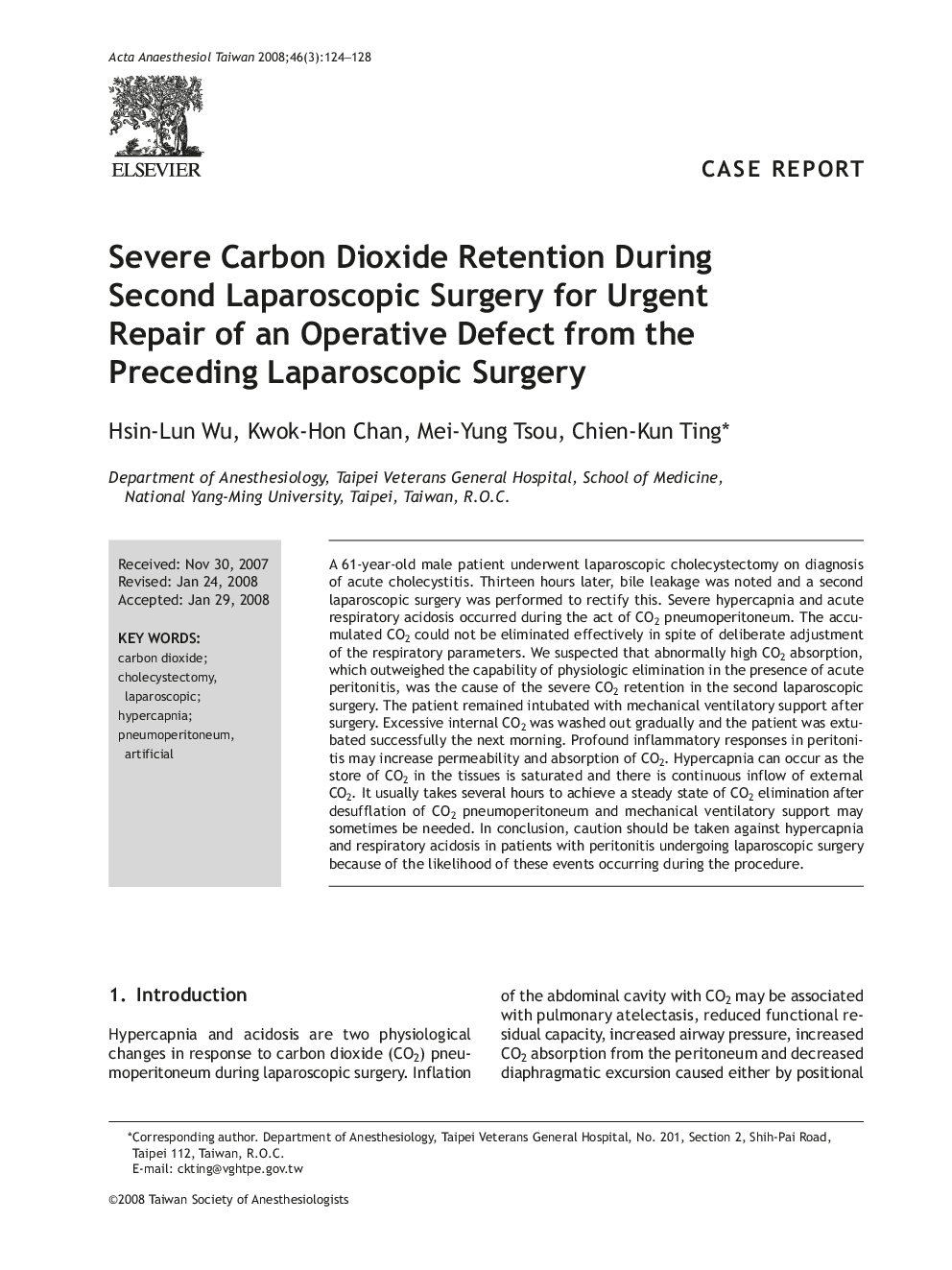| Article ID | Journal | Published Year | Pages | File Type |
|---|---|---|---|---|
| 2741703 | Acta Anaesthesiologica Taiwanica | 2008 | 5 Pages |
A 61-year-old male patient underwent laparoscopic cholecystectomy on diagnosis of acute cholecystitis. Thirteen hours later, bile leakage was noted and a second laparoscopic surgery was performed to rectify this. Severe hypercapnia and acute respiratory acidosis occurred during the act of CO2 pneumoperitoneum. The accumulated CO2 could not be eliminated effectively in spite of deliberate adjustment of the respiratory parameters. We suspected that abnormally high CO2 absorption, which outweighed the capability of physiologic elimination in the presence of acute peritonitis, was the cause of the severe CO2 retention in the second laparoscopic surgery. The patient remained intubated with mechanical ventilatory support after surgery. Excessive internal CO2 was washed out gradually and the patient was extubated successfully the next morning. Profound inflammatory responses in peritonitis may increase permeability and absorption of CO2. Hypercapnia can occur as the store of CO2 in the tissues is saturated and there is continuous inflow of external CO2. It usually takes several hours to achieve a steady state of CO2 elimination after desufflation of CO2 pneumoperitoneum and mechanical ventilatory support may sometimes be needed. In conclusion, caution should be taken against hypercapnia and respiratory acidosis in patients with peritonitis undergoing laparoscopic surgery because of the likelihood of these events occurring during the procedure.
